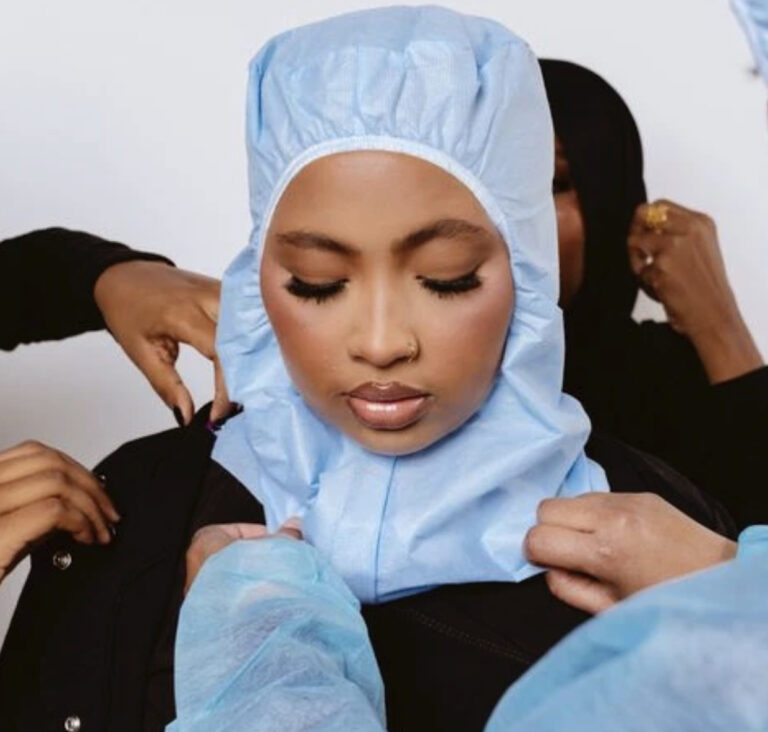Healthcare professionals Yasmin Samatar and Faraoli Adam set out to develop a particular range of hygienic hijabs as part of their commitment to keep Muslim Healthcare workers and staff safe at the hospital.
According to TwinCities.com, the women, who are both 29 years old, found a hole in the industry when they realized there was no access to protective equipment for Muslim women like themselves. After traveling and working together in cities that were heavily hit by COVID-19 cases, the duo found significance in making the sterilized head coverings.

“COVID is deadly, and we all got familiar with the term PPE. But Muslim healthcare workers were left out because nobody thought about it,” Adam said.
The women took a leave from work in 2021 to take necessary steps toward launching their company. After securing a supplier, Samatar and Adam raised $10,000 in the fall.
After trial and error, they decided on disposable designs. The first design, the Zanub, features an adjustable elastic band around the face area and can be easily pulled over. The other design, the Ikram, is a wrap that fits all sizes. Rammy Mohamed of Ramadahn Designs is responsible for the designs.
They prioritized testing the product by holding different focus groups. “We had to find the right material so it’s not too hot or thick, but also not too sheer and meets hijabi modesty standards,” Samatar said. The women also made sure the hijabs met safety protocol through FDA Compliance. “We definitely called the FDA line like, all the time,” Adam said. “So it took a little bit more work.
They aim to sell their hijabs to hospitals, but healthcare workers can purchase products at a discount online at usmawadda.com. “Most people are shocked that this isn’t already provided in hospitals. And the recent push for diversity and inclusion definitely helped us,” Samatar said. “It’s created by us, for us. But having culturally appropriate protection won’t just affect us, it will affect everyone under the care of a Muslim woman: patients, families and communities,” Samatar said.
Mawadda officially launched November 9, and has gained international attention thanks to users in France, the United Kingdom, and China.

